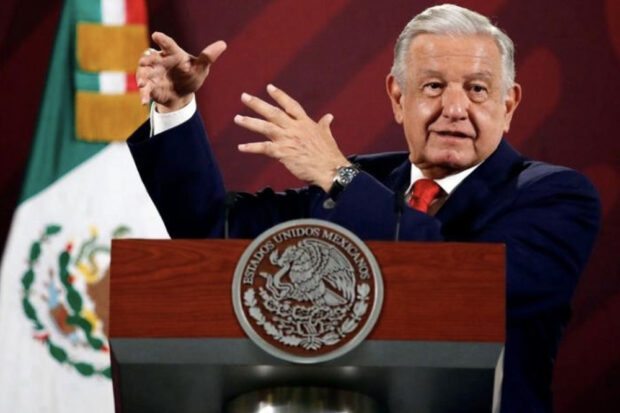
On Oct. 16, Mexico’s president, Andrés Manuel López Obrador, stated the right of his country to trade with Cuba and condemned the blockade established by the United States against the island.
“We don’t have to ask permission from any foreign government because we are a free, independent and sovereign country,” said López Obrador.
“We’re going to do everything we can to help the people of Cuba, have no doubts about this, including petroleum, because this is a people that is suffering from an inhuman, unjust blockade, and we cannot turn our backs on the people of Cuba.
“If they say to us, ‘Sell us petroleum because we have no way to acquire it,’ then, of course, we say ‘yes.’ When we asked them, ‘Help us, because we don’t have medical specialists’ including during the pandemic, doctors came and Cuban medical specialists are working in our country now, and we’re very grateful.”
Clearing Up Some Distortions
A Spanish news agency, EFE, reported on Sept. 30 that Mexico had sent Cuba some $200 million worth of petroleum in 2023, implying that this was a donation. Octavio Romero Oropeza is the general director of Pemex, the oil company owned and managed by the Mexican government. He stated that no donation of fuel to any foreign government has been made by Pemex and that Pemex exports oil to 26 countries.
He and President López Obrador both denied rumors started on Oct. 13 by Rep. Maria Elvira Salazar (R–Fla.), who sent a letter to Reta Jo Lewis, president of the U.S. Export-Import Bank (EXIM), congratulating Lewis on refusing a loan to Pemex. In fact, Pemex withdrew the request for a credit, not a loan, on Aug. 23.
México Nationalized Foreign Oil Companies in 1938
Pemex was formed in 1938 by nationalization and expropriation of all private oil companies in Mexico at the time. U.S., Dutch and British companies owned and controlled the oil of Mexico in 1938.
When Mexican workers went on strike for higher wages and benefits, the Arbitration and Conciliation Board ruled in favor of the workers’ demands. Then the oil companies appealed to the Supreme Court of Mexico, which denied that appeal and affirmed the previous decision, but the companies still refused to comply with the law and settle with the workers.
Due to the companies’ continued defiance of law, then-Mexican president Lázaro Cárdenas invoked the Mexican Constitution to nationalize these foreign companies. Although compensation was offered to the foreign companies, many foreign governments closed their markets to Mexican oil in retaliation for the nationalization, until WWII made them drop their embargo.
Cuba Nationalized U.S. Oil Companies in 1960
After the triumph of the Cuban Revolution in January 1959, U.S. President Dwight Eisenhower canceled all U.S. oil exports to Cuba. Cuba then attempted to import oil from the Soviet Union, but Eisenhower ordered U.S. oil companies to refuse to refine oil imported by Cuba from the Soviet Union.
The Cuban government then nationalized all U.S.-owned refineries within Cuba as a result in August 1960. The first measures of the U.S. blockade of Cuba were instituted in October 1960. Cuba’s oil resources are heavy crude and are less than half of Cuba’s current needs, making Cuba an oil-importing nation. Attempts to convert to sustainable energy sources have been greatly hampered by the blockade and the heavy up-front investment required.
Demanding Respect from the United States
On Oct. 16, at the end of a long press conference by President López Obrador covering many topics, a reporter asked whether the decision to export oil to Cuba had “created a hard-to-manage situation with the administration of President Joe Biden.” President López Obrador responded, “No, no, the people from the government of the United States and President Biden are very respectful of us.”
He then expressed the independence of Mexico, solidarity with Cuba and gratitude for the Cuban doctors, as quoted initially. He spoke of his desire for universal brotherhood, justice and humanism and criticized the right-wing upper class for being interested only in money and for making a rubber-stamp of religion, while they forget that Christ was for the poor and the dispossessed.
The entire Oct. 16 press conference of President López Obrador (in Spanish) can be accessed at


[…] The U.S. should learn from López Obrador’s reforms instead of criticizing them.But, as we all know, U.S. foreign policy favors far-right dictators that grant it access to resources it can steal from the citizens of those countries leaving vast populations in poverty. Hence, the propaganda from some of the highest levels of the U.S. government especially considering López Obrador’s economic reforms included buying and nationalizing Mexico’s oil industry and regularly donating to and trading fuel, medical supplies, and food with countries like Cuba. […]